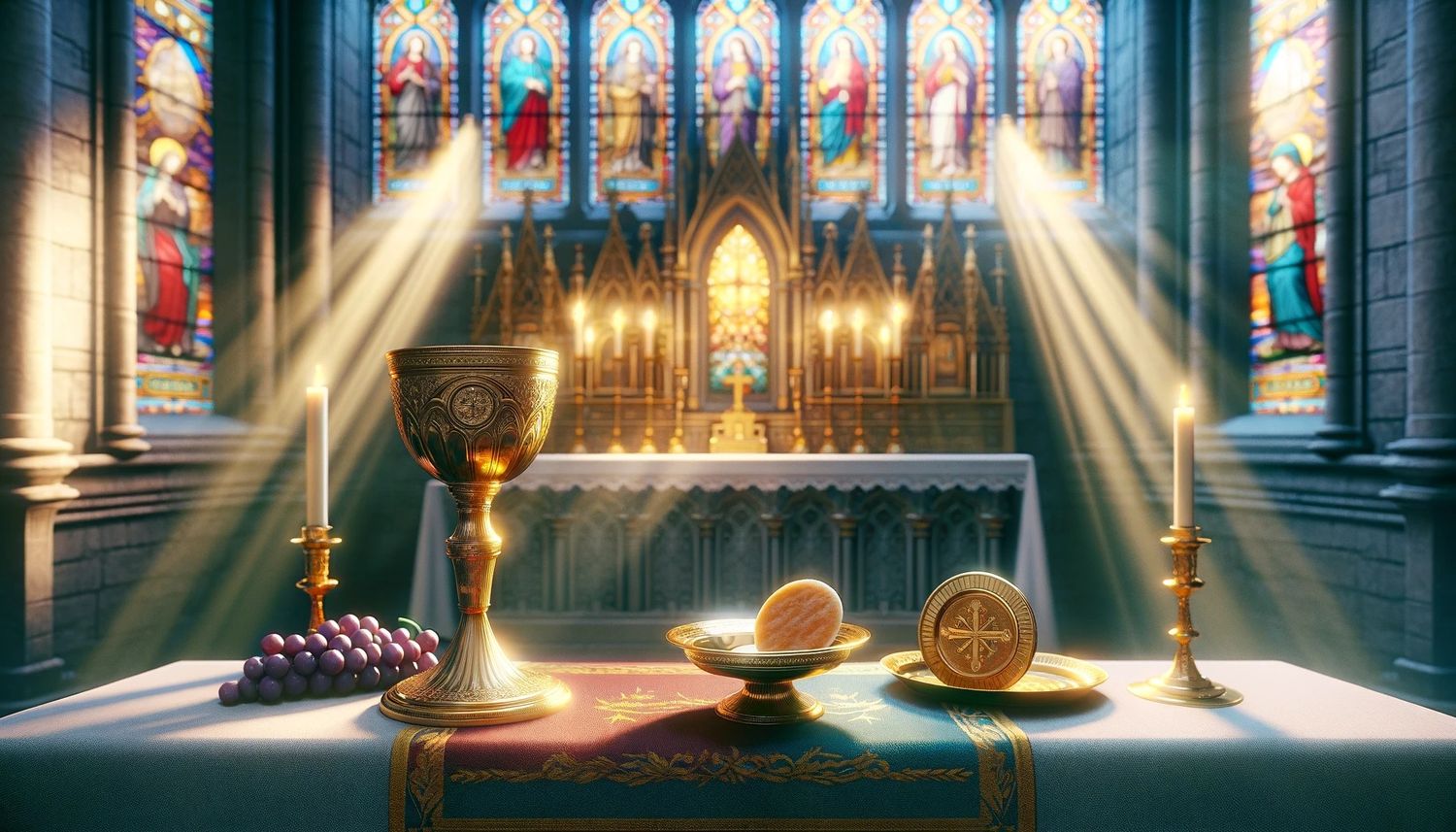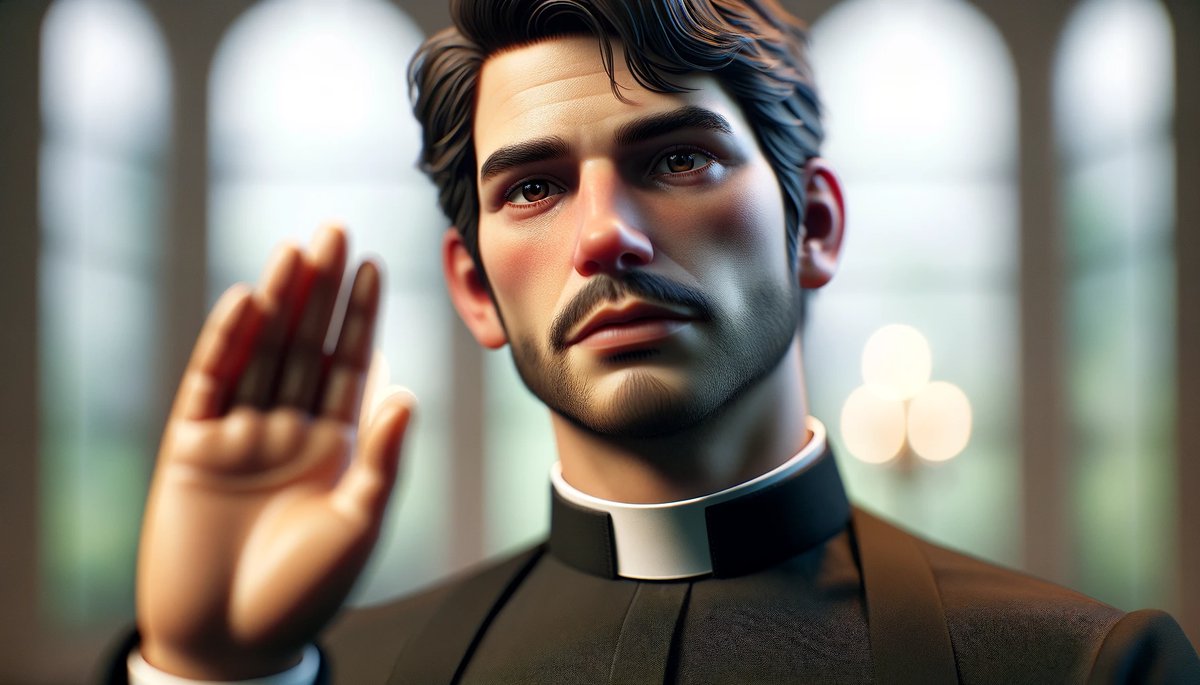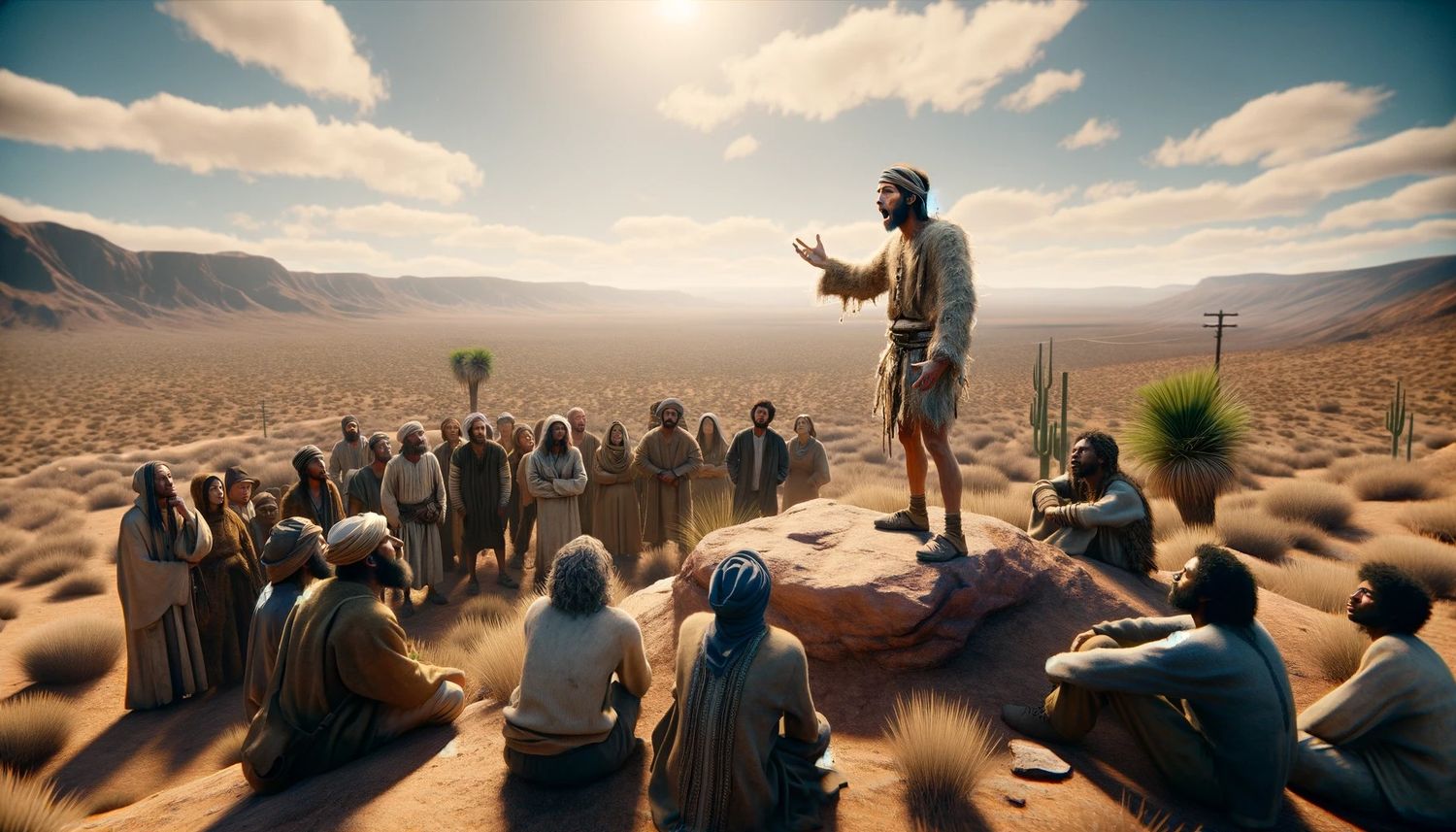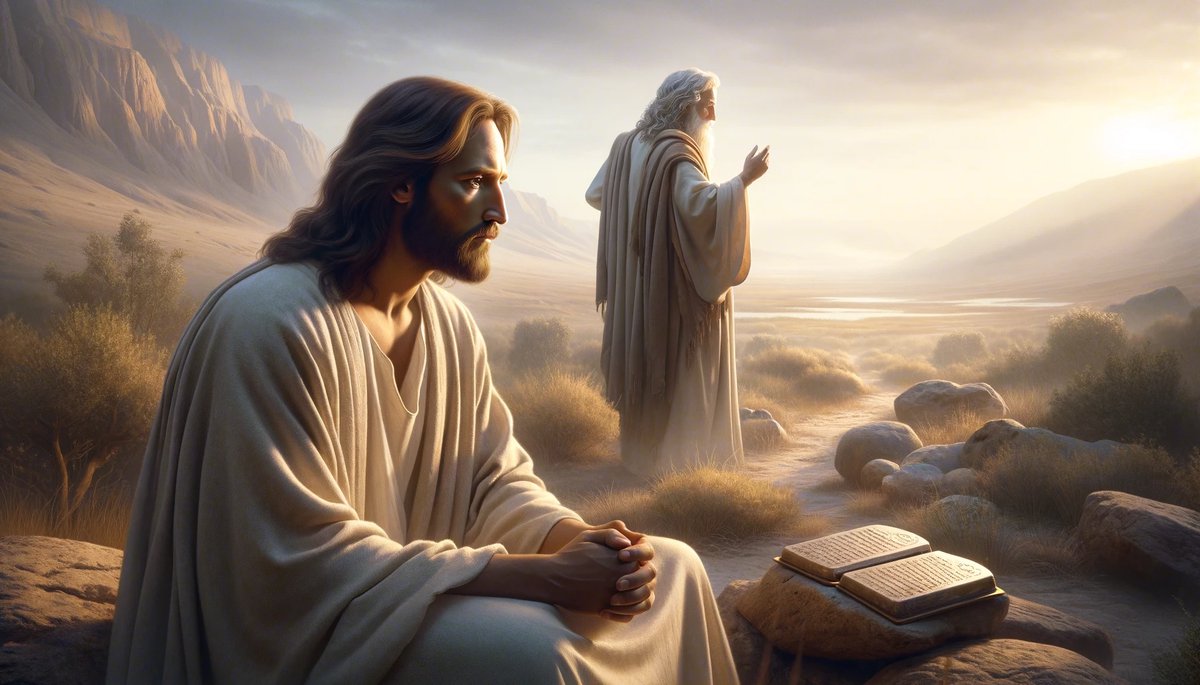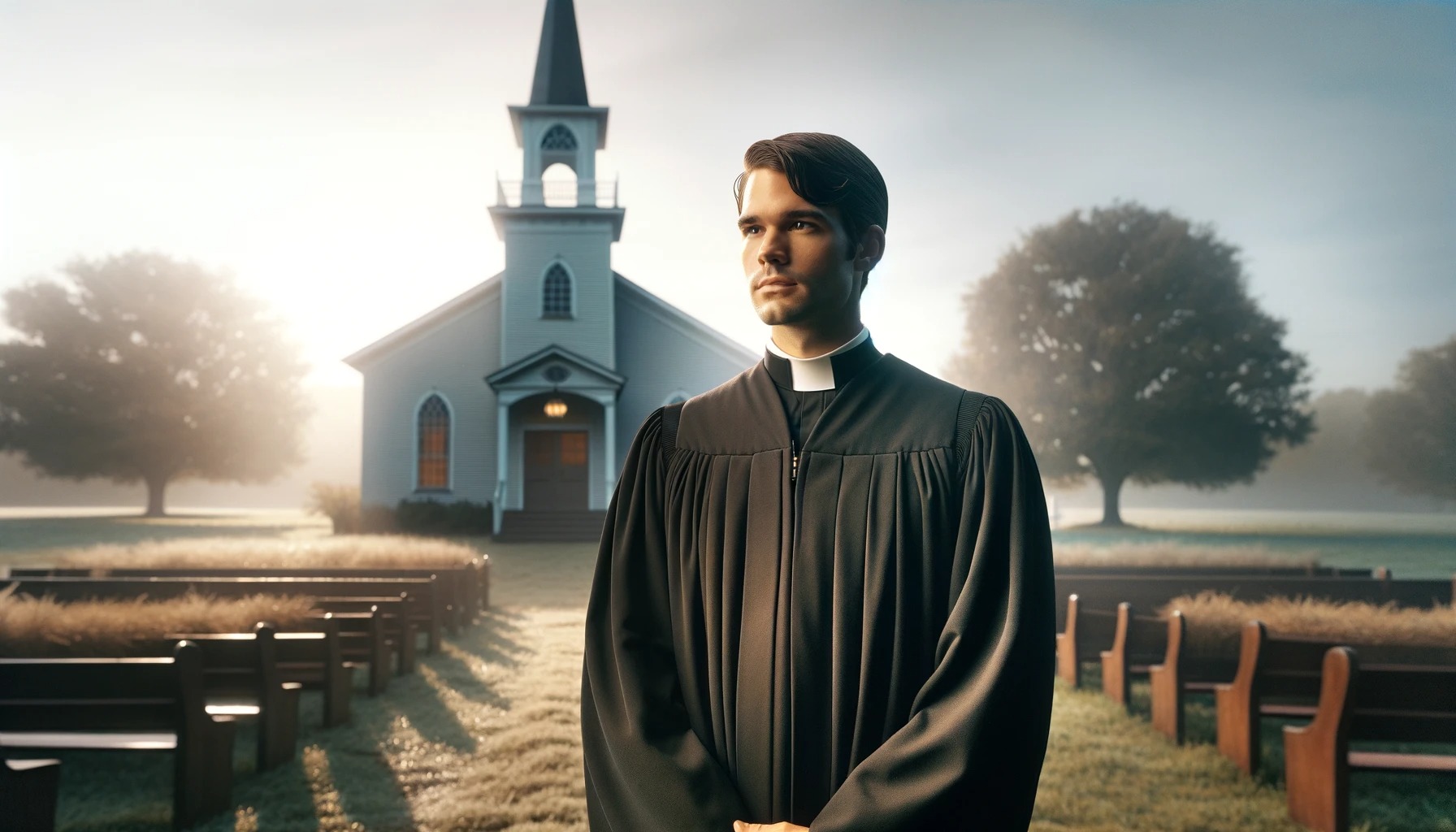Home>Theology and Spirituality>What Do Baptists Think Of Catholicism


Theology and Spirituality
What Do Baptists Think Of Catholicism
Published: February 15, 2024
Ericka Andersen, an editor at Christian.net, expertly merges digital strategy with content creation, focusing on faith and societal issues. Her communication skills enhance the platform's engaging narratives, fostering meaningful dialogue on belief's impact on society.
Discover the Baptist perspective on Catholicism and explore the theological differences and similarities between the two faiths. Gain insights into theology and spirituality.
(Many of the links in this article redirect to a specific reviewed product. Your purchase of these products through affiliate links helps to generate commission for Christian.net, at no extra cost. Learn more)
Table of Contents
Introduction
When exploring the complex tapestry of religious beliefs and practices, it is essential to delve into the perspectives and interactions between different denominations. In this article, we will embark on a fascinating journey into the theological and cultural dynamics between two prominent Christian traditions: Baptists and Catholicism. By shedding light on their historical background, theological differences, views on salvation, worship and sacraments, as well as their interfaith relations, we aim to gain a deeper understanding of the nuances that shape their relationship.
The exploration of these two traditions is not merely an academic exercise but a reflection of the diverse tapestry of human spirituality. It is a testament to the enduring quest for meaning, purpose, and connection with the divine that has been woven into the fabric of human existence for centuries. As we navigate through the intricate terrain of Baptist and Catholic perspectives, we will uncover the rich tapestry of beliefs, rituals, and values that have shaped the lives of millions of individuals across the globe.
This journey is not just about theological doctrines and historical events; it is about the human experiences, the moments of doubt and certainty, the rituals that bind communities together, and the profound questions that have echoed through the corridors of time. It is an exploration of faith, culture, and the human longing for transcendence that transcends the boundaries of denominations and traditions.
As we embark on this exploration, let us approach it with an open heart and a curious mind, ready to unravel the layers of complexity and discover the common threads that unite us as fellow travelers on the path of spiritual seeking.
Historical Background
The historical roots of Baptist and Catholicism trace back to pivotal moments in the annals of Christianity. Catholicism, with its origins in the early Christian communities of the 1st century, evolved into a formidable institution with a rich tapestry of traditions, doctrines, and hierarchical structures. The establishment of the Roman Catholic Church as a dominant force in Western Christendom during the Middle Ages solidified its influence across Europe and beyond.
On the other hand, the Baptist tradition emerged during the 17th century as a response to the perceived excesses and deviations of the established church. Baptists emphasized the principles of believer's baptism, congregational autonomy, and the priesthood of all believers. Their commitment to individual conscience and voluntary association distinguished them from the state-sanctioned churches of the time.
The historical trajectories of these two traditions intersected at pivotal junctures, including the Protestant Reformation. The reformers, including Martin Luther, John Calvin, and others, challenged the doctrinal and institutional practices of the Catholic Church, sparking a wave of religious upheaval across Europe. Amidst this ferment, various dissenting groups, including the Anabaptists, laid the groundwork for what would later become the Baptist movement.
The divergent paths of Catholicism and Baptists were further shaped by their experiences in different cultural and geographical contexts. Catholicism's global expansion through exploration and colonization brought it into contact with diverse indigenous traditions, leading to a complex interweaving of beliefs and practices. Meanwhile, Baptists, influenced by the currents of religious freedom and individual liberty, established communities in Europe and later in the Americas, contributing to the pluralistic landscape of religious expression.
The historical background of Baptist and Catholicism reflects a tapestry of resilience, adaptation, and transformation. It embodies the enduring human quest for spiritual authenticity and communal belonging in the ever-changing currents of history. Understanding this historical backdrop provides a nuanced lens through which to examine the theological and cultural dynamics that continue to shape the relationship between these two traditions.
Theological Differences
The theological variances between Baptists and Catholicism are rooted in divergent interpretations of scripture, ecclesiology, and soteriology. One of the fundamental distinctions lies in the understanding of church authority. Catholicism upholds the authority of the Pope, the Magisterium, and apostolic succession as essential components of the church's governance and doctrinal interpretation. In contrast, Baptists emphasize congregational autonomy and the priesthood of all believers, viewing the local church as the highest authority in matters of faith and practice.
Another significant theological contrast pertains to the sacraments. Catholicism recognizes seven sacraments, including baptism, Eucharist, and confession, as channels of divine grace and crucial rites of passage in the Christian life. Conversely, Baptists generally adhere to two ordinances, namely believer's baptism by immersion and the Lord's Supper, considering them symbolic acts of obedience rather than sacramental means of grace.
The doctrine of salvation also delineates theological disparities between the two traditions. Catholic theology incorporates the concept of meritorious works, penance, and the treasury of merits, emphasizing cooperation with divine grace for salvation. In contrast, Baptists emphasize the primacy of faith in Christ's atoning work, viewing salvation as a result of God's grace received through faith, apart from human effort or merit.
Furthermore, the understanding of the church's nature and mission diverges between Baptists and Catholicism. Catholic ecclesiology emphasizes the visible, hierarchical structure of the church as the mystical body of Christ, with a sacramental and teaching authority entrusted to the ordained clergy. In contrast, Baptists emphasize the invisible, spiritual unity of all believers, with an emphasis on evangelism, discipleship, and the priesthood of all believers as the cornerstone of the church's mission.
These theological differences reflect the distinct emphases, interpretations, and historical trajectories that have shaped the identities of Baptists and Catholicism. While these variances have at times led to theological debates and doctrinal disputes, they also underscore the rich diversity of Christian thought and practice. Understanding these theological disparities provides a deeper appreciation of the complexities and nuances that define the relationship between these two traditions.
Views on Salvation
The theological perspectives on salvation held by Baptists and Catholicism encapsulate profound differences in their understanding of the nature of grace, faith, and the role of human agency in the redemptive process. In Catholic theology, salvation is viewed as a cooperative endeavor between divine grace and human response, encompassing elements of faith, sacraments, and meritorious works. The concept of meritorious works, including acts of charity, penance, and participation in the sacramental life of the church, is integral to the Catholic understanding of salvation. The treasury of merits, a theological concept within Catholicism, emphasizes the accumulation of the merits of Christ, the Virgin Mary, and the saints, which can be applied to the faithful to aid in their salvation.
In contrast, Baptists emphasize the primacy of faith in Christ's atoning work as the sole means of salvation. Central to Baptist theology is the conviction that salvation is a result of God's grace received through faith, apart from human effort or merit. This emphasis on faith as the exclusive instrument of salvation underscores the Baptist commitment to the sufficiency of Christ's redemptive work and the belief that individuals are justified by faith alone.
The divergent views on salvation between Baptists and Catholicism also extend to the understanding of the assurance of salvation. Within Catholic theology, the concept of assurance is nuanced, with an emphasis on the ongoing process of sanctification and the possibility of losing salvation through mortal sin. The sacrament of reconciliation, also known as confession, plays a pivotal role in restoring the state of grace for those who have fallen into sin.
In contrast, Baptists often emphasize the assurance of salvation based on the promises of God's Word and the indwelling of the Holy Spirit in the believer. The concept of eternal security, also known as "once saved, always saved," is a prominent feature of Baptist soteriology, affirming the believer's confidence in the permanence of their salvation once genuinely received through faith in Christ.
These divergent views on salvation reflect the theological distinctives and historical developments that have shaped the identities of Baptists and Catholicism. While these differences have at times been a source of theological tension, they also underscore the rich tapestry of Christian thought and the diverse expressions of faith within the broader Christian tradition.
Worship and Sacraments
The worship practices and sacramental theology of Baptists and Catholicism reflect the distinctive expressions of their faith traditions. In Catholicism, the celebration of the Eucharist, also known as the Mass, holds a central place in the liturgical life of the Church. The Eucharist is regarded as the source and summit of the Christian life, wherein the bread and wine are consecrated and believed to become the body and blood of Christ through the doctrine of transubstantiation. This sacramental understanding of the Eucharist as the real presence of Christ underscores the sacramental theology of Catholicism, emphasizing the transformative power of the sacraments in the life of the believer.
In addition to the Eucharist, Catholic worship encompasses a rich tapestry of sacramental rites, including baptism, confirmation, penance, anointing of the sick, holy orders, and matrimony. These sacraments are viewed as efficacious signs of grace, instituted by Christ and entrusted to the Church, through which divine life is dispensed to the faithful. The sacramental economy within Catholicism underscores the tangible and mystical dimensions of grace, enfolding the believer in a sacramental tapestry that permeates the various stages and dimensions of human life.
On the other hand, Baptists approach worship and sacraments from a distinct vantage point. Baptists emphasize believer's baptism by immersion as an ordinance symbolizing the believer's identification with Christ's death, burial, and resurrection. This act of baptism is viewed as an outward expression of an inward reality, symbolizing the believer's union with Christ and participation in the community of faith. The Lord's Supper, also known as communion, is another central feature of Baptist worship, wherein believers partake of the bread and the cup in remembrance of Christ's sacrificial death.
The Baptist understanding of these ordinances differs from the sacramental theology of Catholicism, as Baptists view them as symbolic acts of obedience and remembrance rather than conferring grace ex opere operato. The emphasis on believer's baptism and the Lord's Supper as acts of obedience and commemoration underscores the Baptist commitment to the priesthood of all believers and the symbolic significance of these ordinances in the life of the church.
The divergent approaches to worship and sacraments between Baptists and Catholicism reflect the theological nuances and historical developments that have shaped their respective traditions. While these differences have at times been a source of theological divergence, they also underscore the diverse expressions of worship and the multifaceted tapestry of sacramental theology within the broader Christian tradition.
Read more: What Do Palms Represent In Catholicism
Interfaith Relations
Interfaith relations between Baptists and Catholicism have evolved against the backdrop of historical, theological, and cultural dynamics. The complex interplay of doctrinal differences, historical legacies, and contemporary engagements has shaped the contours of their relationship, offering insights into the broader landscape of interfaith dialogue within Christianity.
Historically, the relationship between Baptists and Catholicism has been marked by periods of tension, mutual suspicion, and theological polemics. The Protestant Reformation, which precipitated the emergence of Baptist identity, engendered a climate of doctrinal dispute and ecclesiastical separation from the Catholic Church. The ensuing centuries witnessed a legacy of theological debates, institutional rivalries, and divergent trajectories that contributed to a sense of estrangement between the two traditions.
In contemporary times, however, there has been a discernible shift towards greater dialogue, cooperation, and mutual understanding between Baptists and Catholicism. The ecumenical movement, with its emphasis on Christian unity and reconciliation, has provided a platform for constructive engagement and collaborative endeavors. Dialogues on theological, social, and ethical issues have fostered a spirit of openness and receptivity, transcending historical divides and fostering a spirit of commonality.
Interfaith relations between Baptists and Catholicism have also been enriched by shared endeavors in social justice, humanitarian aid, and advocacy for human rights. Collaborative initiatives in addressing poverty, inequality, and global challenges have provided opportunities for joint action and solidarity, transcending denominational boundaries and affirming the shared commitment to the common good.
Moreover, interfaith relations have been nurtured through interdenominational gatherings, ecumenical services, and joint initiatives aimed at fostering understanding, reconciliation, and common witness. These platforms have provided spaces for dialogue, prayer, and shared reflection, cultivating a spirit of mutual respect, appreciation, and solidarity.
The evolving landscape of interfaith relations between Baptists and Catholicism reflects a trajectory of transformation, from historical discord to contemporary dialogue and cooperation. The journey towards greater understanding, reconciliation, and collaboration embodies the enduring quest for Christian unity amidst diversity, offering a testament to the transformative potential of interfaith engagement within the broader Christian tradition.
Conclusion
In conclusion, the exploration of the relationship between Baptists and Catholicism unveils a tapestry of historical, theological, and interfaith dynamics that have shaped their interaction. The historical background of these traditions reflects a narrative of resilience, adaptation, and divergence, underscoring the enduring quest for spiritual authenticity and communal belonging. The theological differences, particularly in areas such as church authority, sacraments, and soteriology, highlight the distinct emphases and interpretations that have defined the identities of Baptists and Catholicism. These theological disparities, while at times leading to theological tension, also underscore the rich diversity of Christian thought and practice.
The divergent views on salvation, worship, and sacraments between Baptists and Catholicism reflect the theological distinctives and historical developments that have shaped their respective traditions. While these differences have been a source of theological divergence, they also underscore the diverse expressions of worship and the multifaceted tapestry of sacramental theology within the broader Christian tradition.
Furthermore, the evolving landscape of interfaith relations between Baptists and Catholicism reflects a trajectory of transformation, from historical discord to contemporary dialogue and cooperation. The journey towards greater understanding, reconciliation, and collaboration embodies the enduring quest for Christian unity amidst diversity, offering a testament to the transformative potential of interfaith engagement within the broader Christian tradition.
Ultimately, the exploration of the relationship between Baptists and Catholicism transcends doctrinal differences and historical legacies, offering a profound insight into the enduring quest for spiritual authenticity, communal belonging, and Christian unity. It is a testament to the rich tapestry of human spirituality, the complexities of faith, and the transformative potential of dialogue, understanding, and collaboration within the diverse landscape of Christian traditions. As fellow travelers on the path of spiritual seeking, may we continue to engage with openness, humility, and a spirit of mutual respect, recognizing the common threads that unite us in our shared humanity and quest for transcendence.
